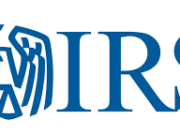Everyone knows sports fans aren’t objective, and it’s never clearer than when a referee makes a bad call. When it goes against your team, you boo and yell about the refs being unfair and harming your team’s chances. When it goes against your opponent, you’ll often stay happily silent.
Politics can be a lot like sports, and campaign finance regulators are the referees. As news about the IRS targeting conservative groups for additional scrutiny continues to emerge, many liberals have missed the point because they haven’t broken out of the fan mindset of cheering when bad things happen to their opponents.
Liberal responses to the scandal have often tried to shift the conversation away from a discussion about government discrimination and towards aspects of campaign finance law they dislike. In The New Yorker, Jeffrey Toobin argues that “the scandal – the real scandal – is that 501(c)(4) groups have been engaged in political activity in such a sustained and open way.” Norm Ornstein writes in The Atlantic that we should be less concerned about the IRS targeting conservative 501(c)(4)’s, and more concerned about Republican senators writing mean letters to the IRS. Chris Hayes of MSNBC acknowledges that “it’s outrageous that a government agency would be targeting political groups based on ideology,” but quickly moves on to say that to understand the IRS scandal “you really need to know about the other, hidden, untold IRS scandal” of 501(c)(4) political activity.
The status of 501(c)(4) groups, and the general structure of campaign finance laws, is a deeply worthwhile discussion that CCP desires to have – but that’s not what the IRS scandal is really about.
The scandal is that government power was being used by the IRS to discriminate against people based on their political beliefs. Whether or not 501(c)(4)’s have one political leaning or another, the IRS must treat them all equally, and it clearly failed to do so. Government discrimination is an issue everyone should be interested in; after all, who controls the government now is not who will control it forever. Under a Democratic White House, the IRS targeted conservative-leaning groups for extra scrutiny. Who’s to say that under a Republican White House, the IRS won’t start going after liberal groups? If we tolerate discrimination against one group, we’re more likely to tolerate discrimination against other groups in the future. Everyone, if only for self-interested reasons, should be invested in preventing discrimination based on an individual or organization’s political beliefs.
First Amendment case law has long recognized the crucial role that a “marketplace of ideas” plays in a democratic society. Citizens must be allowed to hear every idea if they are to decide which idea is best. Erecting onerous burdens to entering that marketplace is itself reprehensible, but to enforce those regulations in an uneven and discriminatory fashion is simply unacceptable. Pundits and partisans need to deal with the scandal on its own terms, and resist the urge to ‘cheer on their team’ by changing the conversation to more comfortable subjects. Otherwise, they might find their own groups being unfairly targeted in the future. Then what will the “real” scandal be?













